The Week at a Glance
- LHCA warns that hide waste will continue in 2020
- Senasa urges Argentina’s tanneries to normalize removal of hides
- US plans three-month suspension of import tariff collection
- Tempe grows 6%, hits €1,400 million in 2019
- Yue Yuen revenues grew 4.2% in 2019
- Steve Madden to furlough workers, cut top executives’ pay
- Amid global closures Faurecia restarts China production at 70% capacity
- Renault closes all plants except in China and South Korea
- COVID-19 restrictions force Natuzzi to delay 2019 financials
- Bain & Co report says luxury will drop significantly 2020
- Chanel, Hermes pay full salary for employees
- Luxury sales rise in Korea amidst viral outbreak
- Salone del Mobile Milano, other trade fairs all canceled
- US Heavy Texas Steers weakly steady
- Looking Ahead: Staying on message with Leather Naturally
GENERAL NEWS
LHCA warns that hide waste will continue in 2020,
 The Leather and Hide Council of America (LHCA) has warned that the phenomenon of cattle hides going to waste rather than being made into leather will continue in 2020.
The Leather and Hide Council of America (LHCA) has warned that the phenomenon of cattle hides going to waste rather than being made into leather will continue in 2020.
In its outlook for the year, LHCA said: “The leather industry has experienced an extremely tough market for the last several years, which will likely continue in 2020. Plastic synthetic alternatives that look like leather but are not leather have taken significant market share away from the material in consumer product areas such as footwear and automobile upholstery. The situation is so dire that some lower-quality hides and skins are being composted and destroyed rather than processed into leather, a trend that will continue in 2020.”
Hide supplies are likely to stay high in the US. LHCA said an expansion of the US cattle herd, which began in 2014, appears to have leveled off. However, it said it expects slaughter levels to slow only slightly in the first half of 2020.
Spain’s trade balance of leather over the last decade
 The Spanish tanning sector sells more than half of its annual leather production abroad. Last year alone, national exports of semi-tanned and tanned leather generated a total of more than €578 million. Imports of hides and leather in 2019 amounted to €461.5 million. If we analyze the evolution of both exports and imports of hides and leather in our country during the last decade, we find that throughout these 10 years, Spain has always sold more raw hides than it bought abroad, contrary to what has happened with semi-tanned hides, whose imports have always been much higher than exports. As for tanned leather, it is noted that only since 2016 sales of this type of leather exceed purchases.
The Spanish tanning sector sells more than half of its annual leather production abroad. Last year alone, national exports of semi-tanned and tanned leather generated a total of more than €578 million. Imports of hides and leather in 2019 amounted to €461.5 million. If we analyze the evolution of both exports and imports of hides and leather in our country during the last decade, we find that throughout these 10 years, Spain has always sold more raw hides than it bought abroad, contrary to what has happened with semi-tanned hides, whose imports have always been much higher than exports. As for tanned leather, it is noted that only since 2016 sales of this type of leather exceed purchases.
By sub-sector, exports and imports of raw hides between 2010 and 2019 have evolved evenly. Although purchases of this type of leather abroad have remained unchanged for the last decade, sales do show a clear downward trend since 2013. Spanish exports of raw leather in 2019, compared to 2013, show a drop of 54.6 percent less.
Regarding foreign trade in semi-tanned hides, we found that both exports and imports of this type of hides reached their lowest values of the entire decade last year, even more than in 2012, a year of marked falls for this sub-sector of skins.
Finally, in relation to the international trade in tanned leather, it is worth highlighting how exports of this type of leather have remained almost unchanged, at around €375 million. On the other hand, imports, after reaching a peak in 2015, has chained in recent years a series of declines that have meant that it has lost, in the last four years, 39.4 percent of its value.
Senasa urges Argentina’s tanneries to normalize removal of hides
El Litoral and various media
 Carlos Paz, head of the National Service for Agrifood Health and Quality (Senasa), has sent a note to tanneries requesting that they resume the normal flow of hide removal, or “the corresponding measures will be taken to guarantee it.”
Carlos Paz, head of the National Service for Agrifood Health and Quality (Senasa), has sent a note to tanneries requesting that they resume the normal flow of hide removal, or “the corresponding measures will be taken to guarantee it.”
The Argentine Chamber of Slaughterers and Suppliers had warned that the tanneries were not complying with the withdrawal of the by-product, which could cause “not only increases in production costs, but may in the short term cause paralysis of the industry, with the consequent shortages, speculation and price increases.”
Along these lines, the Argentine Chamber of the Refrigeration Industry (CADIF) reported that the closing of last week found them “in an operational emergency and on the verge of paralysis, due to the lack of destinations for the hides from slaughter.” If this problem continues, the organization warned that “the regular supply of meat to the population would be prevented.”
Senasa noted that “not collecting or removing the hides resulting from the process of slaughter is causing severe inconvenience in the processes of such establishments” and insisted that “we are all making a great effort without regard to the costs that this emergency means.”
The South American government considers tanning and animal husbandry among the essential sectors: they are therefore authorized to operate. But the tanneries are still nearly at a stop due to logistical problems and firm markets. This dynamic had consequences on meat prices. The slaughterhouses are complaining that in order to prevent the hides from becoming stiff they must keep them refrigerated. All this created an expense that in turn increases the cost of meat.
Campoenaccion.com reports that the Federación Argentina de Trabajadores de la Industria del Cuero y Afines issued a note saying that, “Our workforce is available in every plant, which must be guaranteed the limits that derive from compliance with the emergency regulations. The decision whether or not to receive the raw material is the exclusive decision of the employers but the workers, who are unaware of the commercial disputes between different sectors, must not be exposed to risks. At the same time, we join the request for solidarity with the whole country to implement and apply the measures adopted by the national government in the face of the advance of the Coronavirus pandemic.”
Meanwhile, in the middle of the dispute with tanneries that do not remove the hides and the fear of contagion due to the coronavirus, 10 refrigeration plants stopped working, according to the website.
Spanish tanning sector figure Navarro dies
On March 28, prominent Spanish tanning sector figure Silvino Navarro Vidal died at the age of 93.
 Born in Monóvar (Alicante) in 1927, Silvino Navarro earned a degree in chemical engineering before spending a long career in the leather sector. In 1952 he founded the company Industrias del Curtido (Incusa) in Silla, Valencia. It is one of the most important tanneries in Spain, specializing in tanning cowhides with full-grain, nubuck and patent leather finishes. Years later, in 1972, he continued with Dercosa, specializing in the production of split cowhide for shoes, belts and leather goods. Finally, in 1991, he started up Tenerías Omega, a tannery currently considered one of the main European suppliers of leather for the automotive, domestic upholstery and aviation sectors.
Born in Monóvar (Alicante) in 1927, Silvino Navarro earned a degree in chemical engineering before spending a long career in the leather sector. In 1952 he founded the company Industrias del Curtido (Incusa) in Silla, Valencia. It is one of the most important tanneries in Spain, specializing in tanning cowhides with full-grain, nubuck and patent leather finishes. Years later, in 1972, he continued with Dercosa, specializing in the production of split cowhide for shoes, belts and leather goods. Finally, in 1991, he started up Tenerías Omega, a tannery currently considered one of the main European suppliers of leather for the automotive, domestic upholstery and aviation sectors.
In addition to his professional activity linked to the leather sector, Navarro was a pioneer in bringing the sector together, having founded the Spanish Confederation of Business Organizations ( CEOE ) and of the Valencian Association of Entrepreneurs ( AVE ). He also served as president of the Spanish Council of Tanners (CEC), along with a number of other positions in industry organizations.
![]()
ECONOMIC NEWS
US plans three-month suspension of import tariff collection

The Trump administration is preparing to suspend the collection of import tariffs for three months to give U.S. companies financial relief amid the coronavirus pandemic.
“Customs duties will be suspended for three months,” a senior administration official said Friday (3/27). Companies would still be liable for the tariffs at a later date another official said. Officials said there would be no formal changes to tariff policy.
FOOTWEAR
Tempe grows 6%, hits €1,400 million in 2019
 Tempe, the footwear design, manufacturing and distribution subsidiary of Inditex, closed the last fiscal year with a growth of 6%, reaching €1,400 million.
Tempe, the footwear design, manufacturing and distribution subsidiary of Inditex, closed the last fiscal year with a growth of 6%, reaching €1,400 million.
Moda.es reports that company profits, rose 3.5% to €117 million. EBIT, meanwhile, reached €145 million, 3.5% more, and the gross margin increased 4%, according to accounts deposited with the National Securities Market Commission (CNMV).
Founded in 1989, Tempe has a staff of about 1,500 employees and offices in Mexico, Brazil, China, Hong Kong and India. The company is based in Elche (Alicante).
At the same time, La Conceria reports that Tempe has vowed that it will not lay off employees who have been stopped due to the Coronavirus pandemic. The move aims not to burden the Spanish government. If, however, the health alarm has not stopped on April 16, Tempe, as well as Inditex, will take advantage of Ente, the Spanish layoffs.
Yue Yuen revenues grew 4.2% in 2019
 Yue Yuen Industrial (Holdings) Ltd. reported revenue of $10,105.4 million in 2019, an increase of 4.2 percent compared with the previous year. Profit attributable to owners of the company was down by 2.1 percent to $300.5 million, as compared to $307.1 million recorded for the previous year.
Yue Yuen Industrial (Holdings) Ltd. reported revenue of $10,105.4 million in 2019, an increase of 4.2 percent compared with the previous year. Profit attributable to owners of the company was down by 2.1 percent to $300.5 million, as compared to $307.1 million recorded for the previous year.
Excluding all items of non-recurring nature, the recurring profit for the year ended December 31, 2019 declined by 13.3 percent to $282.3 million, compared to a recurring profit of $325.7 million for the previous year. For the year ended December 31, 2019, the Group recognized a non-recurring profit of $18.3 million, as compared with a non-recurring loss of $18.5 million for the previous year.
Revenue
In the year ended December 31, 2019, revenue attributed to footwear manufacturing activity (including athletic shoes, casual/outdoor shoes and sports sandals) increased by 3.1 percent to $5,557.9 million, compared with the previous year. The volume of shoes shipped decreased slightly by 1.1 percent to 322.4 million pairs and the average selling price per pair was up by 4.3 percent to $17.24 per pair, as compared with the previous year.
Total revenue with respect to the manufacturing business (including footwear, as well as soles, components and others) was $6,000.6 million in 2019, representing an increase of 2.0 percent compared to the previous year.
In the year ended December 31, 2019, the revenue attributable to Pou Sheng, the Group’s retail subsidiary, increased by 14.9 percent to $3,933.0 million, compared to $3,421.7 million in the previous year. In RMB terms (Pou Sheng’s reporting currency), revenue increased by 19.9 percent to RMB27,189.8 million, compared to RMB22,677.4 million in the previous year. As of December 31, 2019, Pou Sheng had 5,883 directly operated retail outlets and 3,950 stores operated by sub-distributors in China.
Gross Profit
In the year ended December 31, 2019, the Group’s gross profit increased by 2.7 percent to $2,513.1 million. This increase was mostly attributed to Pou Sheng, contributing to the higher revenue growth thanks to improved sell-through and the robust sporting goods market in China.
The gross profit margin of the Group’s manufacturing business contracted by 1.0 percentage points to 18.5 percent as compared to that in the previous year. The decrease in the gross profit margin for the manufacturing business was primarily due to a combination of increased product complexity resulting from the current ‘retro fashion’ trend, growing demand for flexible production set-up such as dual-sourcing from different countries, as well as shifting production facilities among countries. It also related to the Group’s investments in manufacturing optimization for its sustainable growth (including higher levels of automation and SAP ERP system implementation), which resulted in temporary low efficiencies at some of its production facilities.
Pou Sheng’s gross profit margin during the year under review expanded to 34.1 percent, compared to 33.5 percent in the previous year, which was attributed to the improvement in product and channel mix, sell-through and discounts.
See the entire earnings release.
Rocky Brands deemed essential, keeps Ohio distribution center open
BUSINESS WIRE
 Rocky Brands, Inc. announced that it would continue operations and shipments from its distribution center in Logan, Ohio following Ohio Gov. Mike DeWine and the Ohio Department of Health issuing a “Stay at Home” order for all nonessential businesses from March 24 through April 6, 2020.
Rocky Brands, Inc. announced that it would continue operations and shipments from its distribution center in Logan, Ohio following Ohio Gov. Mike DeWine and the Ohio Department of Health issuing a “Stay at Home” order for all nonessential businesses from March 24 through April 6, 2020.
“However, we agree with Ohio’s approach to permit distribution centers to continue to operate. This is especially important at this time for our distribution center to operate as our footwear products are utilized by our country’s critical infrastructure businesses which need to be maintained during this crisis.”
The Company’s 200,000-square-foot distribution center, based on a review of the order, has been deemed as an essential infrastructure business operation. The distribution center currently has approximately 1.3 million pairs of footwear in inventory and stands ready to ship the company’s work, duty and outdoor footwear to customers throughout the country.
Rocky Brands’ manufacturing facilities in Puerto Rico and the Dominican Republic are under government orders to not operate for the next 14 days. These plants produce approximately half of the Company’s products, with the remainder being produced by contract manufacturers in other countries – primarily China – where manufacturing resumed at the end of February.
Rocky Brands began having its corporate staff work remotely in mid-March. The company will continue operations at the distribution center while taking steps to ensure the safety and well-being of its employees there. To that end, Rocky Brands has implemented several policies in accordance with CDC and Ohio Department of Health guidelines. This includes limiting contact among staff members, conducting daily health screenings, ongoing cleaning and sanitization of the entire facility and dividing employees into work teams who will work one week on and one week off.
Italy’s Assocalzaturifici offers juridical help to members
 The Italian Footwear Manufacturers Association (Assocalzaturifici) said it remains operational and is offering help and support to members who are encountering commercial difficulties, including juridical assistance.
The Italian Footwear Manufacturers Association (Assocalzaturifici) said it remains operational and is offering help and support to members who are encountering commercial difficulties, including juridical assistance.
Assocalzaturifici said all its staff are operating in a “smart working” regime, minimizing social contact and with data located on an online server. In response to an increasing number of requests for help from its members for the managing and resolving commercial problems resulting from the expansion of the COVID-19 pandemic, the association is offering the services of its law firm to its members at no cost to the companies. For instance, members who have received order cancellations or payment refusals can send requests for assistance. Assocalzaturifici President Siro Badon said they are working closely with industrial relations representatives and that a summary of the tools put in place by the government and local authorities to help the companies deal with the emergency situation, particularly to help clarify the rules of layoffs, will be made available shortly.
Ecco has “a difficult time”
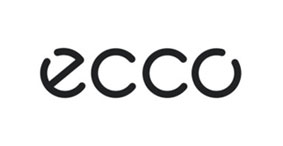 While the European stores of global player Ecco remain closed, shoe production in China is starting up again.
While the European stores of global player Ecco remain closed, shoe production in China is starting up again.
“The threat posed by the coronavirus should not be underestimated. We would, therefore, like to thank all those who are dedicated to dealing with this health emergency,” said Ecco CEO Steen Borgholm. The Danish shoe company closed all stores in Europe, the USA and Canada on March 18. Added to this are the Ecco partners’ closings. “Our goal is to face the challenges of the Corona crisis in close cooperation with our partners and to look for solutions that will support our further partnership when this difficult time is behind us,” Ecco said on request from Schuhkurier. All orders for the current season would be stored at Ecco until further notice. However, this product can also be delivered on request.
Meanwhile, the situation in China has eased somewhat. In Xiamen, Ecco operates its own shoe factory with an associated tannery. “Production in our facility and tannery in China was resumed after a short time. Since our supply chain is prepared for a multitude of challenges, we do not expect any delays in delivery,” says Ecco. Overall, however, one hopes for an early improvement. “We trust the local and international authorities here.”
Steve Madden to furlough workers, cut top executives’ pay
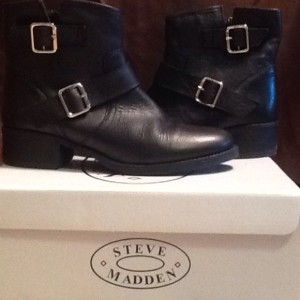 Steven Madden Ltd. has become the latest footwear company to announce furloughs and pay cuts as coronavirus pandemic measured continue to hit the retail sector.
Steven Madden Ltd. has become the latest footwear company to announce furloughs and pay cuts as coronavirus pandemic measured continue to hit the retail sector.
In a filing with the Securities and Exchange Commission, Steve Madden announced plans to furlough a “significant” number of its workers starting April 1. Those who take home more than $100,000 per year, on the other hand, will see their salaries reduced by graduated amounts. Employees will still be able to retain their medical benefits.
Founder and creative chief Steve Madden and chairman and CEO Edward Rosenfeld will not receive any pay. Salaries of the company’s president, CFO, COO and the merchandising chief will be cut by 30%. The board of directors has also agreed to delay its members’ cash compensation.
On March 18, Steve Madden said it was pulling its fiscal year 2020 revenue and earnings guidance as a result of the “increasing uncertainty related to the potential impact of COVID-19 on the company’s global business operations.” In its fourth-quarter and full-year earnings report on Feb. 27, the retailer had predicted a revenue gain of 0% to 1% and diluted earnings per share in the range of $1.70 to $1.80 for fiscal 2020. As of Dec. 31, its cash, cash equivalents and current marketable securities were about $304.6 million.
Epidemic had significant impact on China’s footwear, apparel retail
Everbright Securities

According to the National Bureau of Statistics, total retail sales of consumer goods from January to February 2020 dropped by 20.5% year-on-year. The impact of clothing retail sales in February was the main reason for the cumulative year-on-year decline from January to February.
Overall, almost all brand apparel companies were affected by the epidemic in February, and there was a large increase in the retail end. The decline was mainly due to the drastic decline in store passenger traffic during the epidemic prevention and control; Brands contacted members/fans, used WeChat stores, did live streaming and other forms through WeChat to drive sales from offline to online. This had a small effect on the decline in sales, but it is difficult to make up for the full impact of the epidemic.
The analysis of the sub-sector shows the following characteristics: 1) In terms of channels, offline channels are under pressure due to delays in the resumption of work and a decline in passenger flow. Online companies are actively promoting an offline transition to online and recovering some consumption losses.
In terms of positioning, the decline in high-end women’s clothing and mid-to-high-end home textile companies is relatively small (with a decline of less than 50%). Among them, high-end women’s customers have strong stickiness, and offline consumption is more effective in guiding online. Mid-to-high-end men’s clothing, footwear, sportswear (A-share samples are noble birds), outdoor, children’s clothing and children’s shoes in February retail sales fell significantly year-on-year.
Although the opening rate of brand stores has gradually increased, it is still subject to residents. Passenger flow caused by reduced travel has not yet fully recovered, and consumer willingness may shrink under pessimistic expectations of macroeconomic growth.
In the long run, the impact of the epidemic will be temporary in the end. It is recommended to pay attention to development opportunities such as sports apparel and non-woven fabrics in the sub-sectors, and promote new marketing models such as online and offline integration and the application of live streaming to promote the anti-risk capabilities and the improvement of comprehensive competitiveness has gradually promoted high-quality companies.
Risk analysis: Increased downward pressure on economic growth affects consumer willingness; the epidemic lasts longer than expected.
Spain reports January 2020 footwear trade balance
 During the first month of 2020 (before the coronavirus crisis began in Spain), sales of Spanish footwear abroad grew both in terms of value and volume. For their part, imports also increased at the beginning of the year.
During the first month of 2020 (before the coronavirus crisis began in Spain), sales of Spanish footwear abroad grew both in terms of value and volume. For their part, imports also increased at the beginning of the year.
According to the General Directorate of Customs, in January 2020 Spain sold a little more than 13.4 million pairs abroad for a somewhat higher value of €243 million. Compared to the same month in 2019, export sales were up 11.8 percent in volume and 5.9 percent in value terms. Our main buyers of footwear were, in order of value, France (+12.1 percent), Italy (+7.2 percent), Germany (+7.1 percent), Portugal (+38, 5 percent) and EE. USA(-22.3 percent). The average price of the pair sold abroad during the month of January this year was 18.11 euros.
Regarding January 2020 imports, Spain bought a little more than 29 million pairs for more than €113.5 million. The imports grew compared to January 2019 by 1.3 percent in quantity and 16.6 percent in value. Our top five shoe suppliers were, in order of value, China (+9.4 percent), Belgium (+50.2 percent), Vietnam (-4.2 percent), Italy (+18.6 percent) and the Netherlands (+9.5 percent). The average price of the imported pair in the first month of 2020 was €11.52.
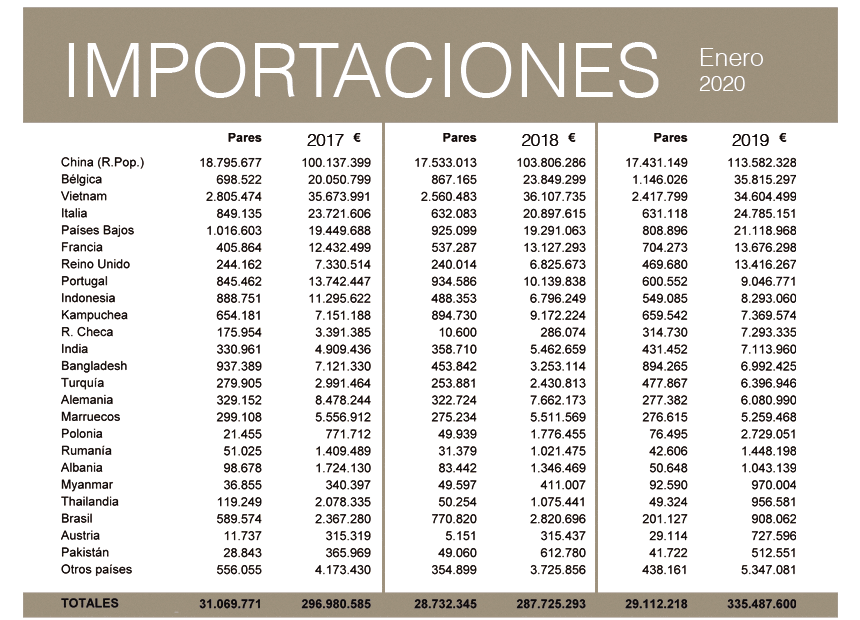
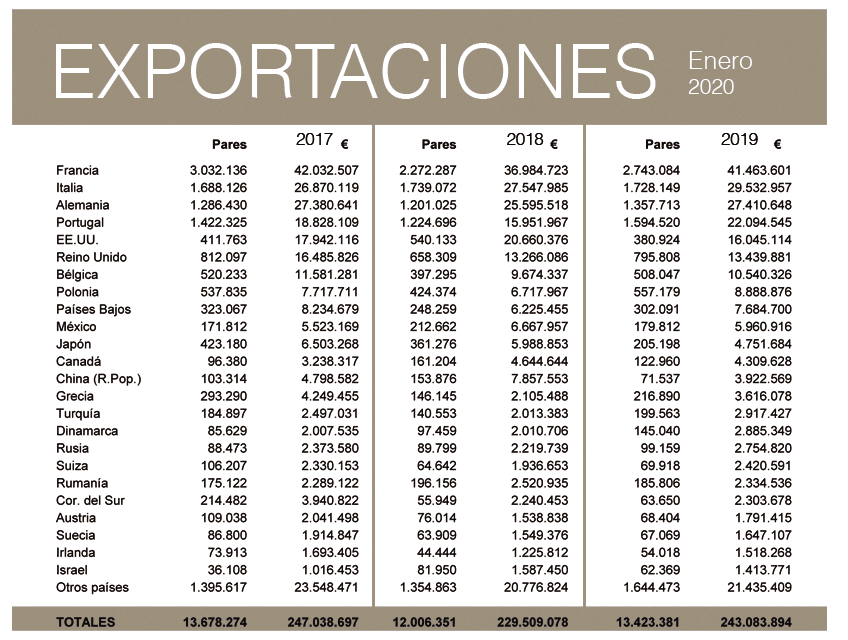
Can Baidu, seeing big losses, remain in the leather shoe market?
Beijing Business Daily
On March 30, Qianbaidu International Holdings Co., Ltd. issued a 2019 performance report showing that during the reporting period, revenue declined, but losses narrowed. The industry believes that the narrowing of losses is inseparable from Qianbaidu’s refocusing on the main business. In fact, 2019 also became the year when Qianbaidu focused on its main business, but for Qianbaidu, this is not enough. In the context of the slow development of the leather shoe industry, there are still many factors to consider in order to be a player with the leather shoe market.
Revenue decreased year-on-year
On March 30, Qianbaidu released its 2019 unaudited results, saying that revenue was 1.936 billion yuan, a year-on-year decrease of 18.6%; gross profit was 1.159 billion yuan, a year-on-year decrease of 14.9%. The loss attributable to shareholders was 315 million yuan, a year-on-year narrowing of 18.7%.
The announcement shows that in 2019, the revenues of thousands of Baidu’s retail and wholesale business, contract production business, and toy retail business were 1.626 billion yuan, 211 million yuan, and 321 million yuan, a decrease of 20.7%, 7.8%, and 50.3%. Among them, the decline in revenue from retail and wholesale business was mainly due to the decrease in same-store sales of footwear compared to the same period last year and the closure of inefficient shoe stores; the decrease in revenue from contract production was mainly due to the reorganization of the Group’s OEM production lines; the decrease in revenue from toy retail business mainly due to the sale of Hamleys’ overseas business in July 2019.
Like many footwear companies, Qianbaidu closed some offline stores in 2019. Financial data show that in 2019, Qianbaidu cut 203 self-operated shoe retail stores and 48 third-party shoe retail stores. As of December 31, 2019, Qianbaidu had 1,214 self-operated shoe retail stores and 245 third-party shoe retail stores in China.
Focusing on the main business was the concept for Qianbaidu in 2019. In July 2019, Qianbaidu acquired Hamleys, a toy business that was sold for four years, and said: “Due to the synergy between the core footwear business and the toy business, the expected diversification of the Group’s business has not been achieved. After the transaction is completed, Qianbaidu will focus most of its resources on the group’s core footwear business.”
In August 2019, Qianbaidu invested in a factory in Jiangsu to build a high-end brand women’s shoe R & D and production base, an auxiliary logistics distribution center, and a group R & D center. Results from 2019 show that the footwear business revenue reached 1.837 billion yuan, accounting for 85.1% of the total revenue, and the toy retail revenue only accounted for 14.9% of the total revenue. The footwear business has once again become the main contributor to Qianbaidu’s main business.
In fact, the situation of domestic-made leather shoe companies in recent years is not optimistic. Public data shows that in the context of overcapacity and intensified competition in China’s footwear industry, the sales revenue of China’s footwear industry reached its largest value in calendar years in 2016; from 2017 to 2018, demand showed a trend of declining fluctuations; China’s footwear industry in 2018 had sales revenue of 611.633 billion yuan, a year-on-year decrease of 17.82%.
In 2019, traditional shoe-making companies were still having difficulties, and several major traditional companies were also faltering. The performance of the red dragonfly is declining. Daphne closed its stores in batches, and the rich birds withdrew from the market and wen bankrupt.
Yang Dazhen said: “Most local companies are doing capacity and scale, not brand content, that is, lack of brand adherence to consumer demands, lack of unique brand positioning and style, and the products launched are basically copies of best-selling models, and No careful study of consumer positioning and needs. ”
It is worth mentioning that there are also many old-fashioned leather shoe companies that transform and stop bleeding. Saturday acquired Yuanwang, the main Internet business, and abandoned its production capacity in 2019 to embark on an asset-light route. Belle launched casual sports shoes. Daphne, which has suffered a huge loss, also began to try an asset-light model and introduced sports elements.
The same as the old-fashioned leather shoes, Qianbaidu is also trying to save itself. In addition to focusing on the core business of footwear, Qianbaidu also stated in its performance report that it has found that the sports and leisure market is in the early stages of rising and has invested more resources to seize this promising market opportunity. At the same time, Qianbaidu also shifted its development strategy to the low-line market, which has been growing rapidly, and enhanced e-commerce coverage to drive the development of online-to-offline business.
“In the future, we will continue to establish a global brand image through measures such as implementing various brand strategies, expanding retail networks, implementing marketing strategies, and improving operational efficiency. We will introduce new distribution channels, optimize offline sales and distribution networks, and develop online business and Platform,” Qianbaidu said in the report.
“The Qianbaidu brand is aging and cannot reach young consumers. The future market is mainly based on emotional consumption and content consumption. Enterprises need to classify consumer needs and styles, and then accurately target certain markets to gain unique presence value.”
![]()
UPHOLSTERY
Amid global closures Faurecia restarts China production at 70% capacity
Autocar Pro
![]() French global automotive supplier Faurecia says its customers have or will temporarily shut down most of their production in the countries impacted by the virus. Consequently, the French supplier has also had to shut down a large number of its production sites in Europe and will do the same in North and South America, respecting national recommendations.
French global automotive supplier Faurecia says its customers have or will temporarily shut down most of their production in the countries impacted by the virus. Consequently, the French supplier has also had to shut down a large number of its production sites in Europe and will do the same in North and South America, respecting national recommendations.
At the same time, Faurecia is preparing the safe restart of production as soon as it is possible, including in an environment where the virus is not completely eradicated. In China, all of the Group’s sites have now restarted production, with an average capacity utilization rate of around 70 percent. Based on this experience, Faurecia says it is confident in its ability to get through the crisis in other regions of the world and to be able to quickly mobilize its teams to accompany its customers as they restart production.
Patrick Koller, CEO, Faurecia said: “We are going through an unprecedented crisis of an uncertain duration, even if we are seeing positive signs of normalization coming from China. We have immediately put in place all the necessary action plans to get through this period, and we will continue to adapt our response as the pandemic evolves.”
Ferrari extends Italian plant closures
 Reuters has reported that Ferrari will extend the shutdown of its two Italian plants and reopen on April 14, provided it has supplies, and update 2020 forecasts in May when it releases its first-quarter earnings.
Reuters has reported that Ferrari will extend the shutdown of its two Italian plants and reopen on April 14, provided it has supplies, and update 2020 forecasts in May when it releases its first-quarter earnings.
Ferrari last month closed factories in Maranello and Modena. The company cited “the huge uncertainty and lack of predictability that the COVID-19 has created” and reported that said it would continue to cover all days of absence for those employees who could not work remotely.
Renault closes all plants except in China and South Korea
 French carmaker Renault has halted production at all its plants across the world, except in China and South Korea.
French carmaker Renault has halted production at all its plants across the world, except in China and South Korea.
“The Group plans to restart production activities in the countries concerned as soon as conditions permit and will implement appropriate measures to respond effectively to commercial demand,” Renault said. The carmaker’s site in Wuhan, the epicenter of the outbreak, was taken offline in late January. It has an annual production capacity of 150,000 vehicles.
The Busan factory in South Korea, which turns out 216,000 cars a year, was stopped on Feb. 7.
Renault has already warned of possible factory closures as it races to cut costs amid the coronavirus crisis, after posting a net loss of 141 million euros ($156 million) for 2019 – its first year in the red in a decade.
Unit sales fell 3.4% last year to 3.75 million vehicles.
The French government, which owns a 15% stake in Renault, has said it will be “vigilant” over plant closures or job cuts.
COVID-19 restrictions force Natuzzi to delay 2019 financials
 Italian leather upholstery and home furnishings manufacturer Natuzzi S.p.A. has applied to the Securities & Exchange Commission for relief on filing requirements for its fiscal year ended Dec. 31.
Italian leather upholstery and home furnishings manufacturer Natuzzi S.p.A. has applied to the Securities & Exchange Commission for relief on filing requirements for its fiscal year ended Dec. 31.
In February, Natuzzi had provided the SEC with preliminary updates on the impacts of the COVID-19 outbreak on its operations in China.
Because Natuzzi is based in Italy, it is subject to the quarantine imposed by the Italian government in response to the COVID-19 outbreak, which the company said has restricted its ability to access the company’s premises and records.
“Consequently, the company cannot ensure that all activities required to finalize the company’s consolidated financial statements can be completed within the original deadline,” according to a Natuzzi release.
The Italian government’s measures in response COVID-19 included an order that extends the deadline for the Natuzzi to hold a shareholder meeting to approve its financial statements from 120 days to 180 days after the end of the applicable financial year. In accordance with the Italian order, the company intends to call a shareholder meeting to approve its financial statements for the year ended Dec. 31, 2019, no later than 180 days after that date.
The company expects to file its annual report on Form 20-F for the financial year ended Dec. 31 no later than June 14.
SOS Leather makes bags from used leather seats
Women in Costa Rica are giving a second life to the leather from aircraft seats, turning it into bags and accessories. It is a circular and supportive idea. The brainchild of Lynne Corvaglia, a fourth-year student at the University of Toronto, the concept won the $5,000 first prize in a competition organized by The Hub, a startup incubator that collaborates with the Canadian university. Her idea was immediately accepted by Southwest Airlines and the Dallas airline has decided to remove the leather seats from its fleet of around 750 Boeing 737s: Southwest will donate 64 tons of leather to the project.
Meble Polska makes strides
 A date change from March to February paid off for Eastern Europe’s largest furniture trade show, Meble Polska, last month.
A date change from March to February paid off for Eastern Europe’s largest furniture trade show, Meble Polska, last month.
The timing accommodated busy schedules for buyers, many of whom were booked for the March round of Asian furniture shows. COVID-19 forced those events to postpone, but advance notice of Meble Polska’s new dates put Poznan on more buyers’ to-do list, especially with the Polish industry’s focus on export markets.
The show drew buyers from 69 countries, a record, to see the offerings of some 500 exhibitors, with big increases among visitors from the United States and Canada, according to organizers.
“A week before the start of the event, everything seemed to indicate that it would be a record edition in terms of the number of furniture buyers. The data from the visitor registration system showed that almost 20% more traders are going to Poznań than during previous editions.
“In the first two days of the fair we recorded a significant increase in the number of visitors, which was also noticed by the exhibitors at their stands,” said Józef Szyszka, director of Meble Polska. “However, the worrying information about the coronavirus approaching Poland meant that the second half of the fair, and especially the last day of the fair, was marked by a slightly lower attendance.”
Still, attendance was around 2% over 2019 with some 21,949 buyers in total, including a 38% increase in foreign buyers.
Poland is the second-largest furniture exporter in the world now with around $10 billion in exports in 2019, and Meble Polska is counting on that fact to expand buyer participation in the event according to Szyska.
Seven Polish furniture manufacturers showing at Meble Polska are scheduled to team up for a joint presentation of selected products at High Point Market, now set for June 12-14, in the 220 Elm building.
Read the entire feature at Furniture Today.
![]()
GARMENTS AND ACCESSORIES
Bain & Co report says luxury will drop significantly 2020
A new Bain & Co report on the impact of the Coronavirus pandemic on global luxury says that turnover is estimated to decline as much as to 25% for the year, with profits taking an even bigger hit. While Bain offers up a variety of scenarios, its best-case scenario would be a decline of 15-18% range, with the worst case being 30 to 35% at the end of the year.
Bain consultants expect that the first quarter will end with a drop in sales of between 25% and 30% while the loss for the entirety of 2020 will be between 22% and 25%, equal to a figure between 60 and 70 billion euros. The situation will lead brands to review the supply chains and modify the product life cycle and stock management, they add.
“For 2021 we expect the return to growth, fueled by the trends that we had identified since 2019 and which would have been the basis for 2020. The push will come from the Chinese market, from digitization and from generations X and Y.” A major caveat is that the report does not exclude that the pandemic could continue to make its effects felt also next year.
Bain also says that not all parties will return to “normal” and that the industry has to rapidly rethink business. “The luxury supply chain is long and complex, the big players are huge companies, but it is necessary to make every decision-making process more agile. The supply chain must follow, observing two mantras: flexibility and sustainability.”
European tourist retail hit by COVID-19
Data on European retail in February released by payments provider shows that Europe’s retail and luxury industries experienced a big drop in sales to tourists across all major destination markets during February. The countries that were suffering the most from the coronavirus crisis at the time – Italy and Spain – suffered the biggest declines, down 39% and 21% respectively.
Chinese consumer spending in Europe fell by 53%, although US travelers actually spent 23% more year-on-year, likely due to the growing strength of the dollar. Sales to tourists from Russia, Kuwait and South Korea also grew during February, but not by enough to counteract the decline in sales to Chinese tourists. Overall international spending in Europe was down 13%.
UK, retailers saw a 45% drop in sales to Chinese shoppers but made sales gains from GCC (Gulf Cooperation Council) spenders. Sales to spenders from Kuwait and Saudi Arabia rose 47% and 29% respectively. Planet also said that more than a quarter (26%) of tourist spending in the UK in February was done by ‘hyper spenders,’ – who make up 1 percent of international shoppers and typically spend €30,000 per visit.
March spending figures are expected to be grim.
Chanel, Hermes pay full salary for employees
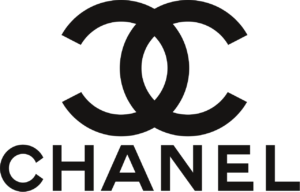 In Italy and France, Chanel is paying full salaries to employees. The French group’s decision is valid for eight weeks and covers 750 Italian employees, according to Pambianco News. This encompasses workers in production plants as well as logistics and coordination centers.
In Italy and France, Chanel is paying full salaries to employees. The French group’s decision is valid for eight weeks and covers 750 Italian employees, according to Pambianco News. This encompasses workers in production plants as well as logistics and coordination centers.
It is following the same policy in France, where it employs around 8,500 people, who will be paid during the period March 16 to May 8.
Meanwhile, Hermès has pledged to maintain the base salary of its 15,500 employees worldwide without resorting to the support measures announced by governments. At the same time, the company said that it will adjust the dividend by 9%, lowering it to €4.55 euros, instead of the €5.00 originally planned. In addition, the company’s vice presidents have waived stipulated increases in their fixed compensation for 2020. Hermès has kept all of its stores closed in Europe for two weeks and closed its production plants in France, with the exception of Vaudreui, where it it is producing disinfectant gel.
LVMH says Q1 sales could decline by 10% to 20%
 Louis Vuitton owner LVMH said on Friday it could “accurately” calculate at this stage the impact of the closures of production sites and stores linked to the global coronavirus pandemic. The French luxury goods group issued a short statement that it will publish its sales figure for the first quarter on April 16, after the close of the Paris market.
Louis Vuitton owner LVMH said on Friday it could “accurately” calculate at this stage the impact of the closures of production sites and stores linked to the global coronavirus pandemic. The French luxury goods group issued a short statement that it will publish its sales figure for the first quarter on April 16, after the close of the Paris market.
“The figure is not known today, but it can be reasonably expected that it will decrease in a range between 10 and 20% compared to the same period last year,” LVMH reported.
Coronavirus stalls Prada growth
 Prada Group warns that the coronavirus pandemic has “interrupted” its growth. Net revenues for the group, including both Prada and Miu Miu, rose by 2.7% to £2.9 billion for 2019.
Prada Group warns that the coronavirus pandemic has “interrupted” its growth. Net revenues for the group, including both Prada and Miu Miu, rose by 2.7% to £2.9 billion for 2019.
“2019 was a year of strong progress. The combination of investment and operational initiatives, implemented over the past few years, clearly translated into brand heat and sales,” said Prada group chief executive Patrizio Bertelli. Despite the strong results of the previous year, Bertelli said that the beginning of this year has already been affected by the COVID-19 pandemic.
“The Coronavirus outbreak has interrupted our growth trajectory, and although it is difficult to forecast the evolution of the epidemic, we are expecting a negative impact on this year’s results and we are implementing a comprehensive contingency plan to mitigate it, relying on our flexible supply chain and lean organization.”
The group reported that sales trends are beginning to improve in China.
Pittards earnings improve as it delays dividend decision
 Pittards, the British leather and luxury goods manufacturer, reported revenue of £22.3m in its final results for 2019, down from £28.5m year-on-year.
Pittards, the British leather and luxury goods manufacturer, reported revenue of £22.3m in its final results for 2019, down from £28.5m year-on-year.
The firm said its gross margin increased to 30.9% for the year ended 31 December, from 25.1%, while its profit before tax improved to £0.6 m from £0.4m. EBITDA was up to £2m from £1.8m in 2018, while net assets slipped slightly to £17.5m from a restated £17.8m in the prior year.
Pittards said it saw repeat orders from both interiors and big shoe markets during the year, and established Ethiopia further as a shoe manufacturer.
“We have come a long way this year; achieving expectations despite weaker global demand and, in entering the strategically important interiors and large shoe markets, changing the shape of our business,” said chairman Stephen Yapp. “Aligned with our strategic priorities, we are delivering predominantly hide-related new products to a wider range of customers, creating a more balanced portfolio,” he added.
“The outlook for the current year is uncertain due to the impact of [the Covid-19] coronavirus [pandemic], and has started with reduced demand whilst we, the board, are actively monitoring the situation on a frequent and regular basis, and have contingencies in place to address the evolving situation.”
Luxury sales rise in Korea amidst viral outbreak
The coronavirus situation in Korea is not getting any better, with more cases recorded over the weekend; but amazingly, this has not kept people from shopping for luxury goods. Last weekend, customers wearing face masks queued in front of almost every luxury brand outlet, including Louis Vuitton, Gucci and Cartier, at Times Square in the Yeongdeung District of western Seoul.
A saleswoman said they were not allowing people in who weren’t wearing face masks and everyone was instructed to sanitize their hands upon entering the department stores. While shoppers have avoided going to most department stores for fear of contracting the virus, with many closing down temporarily, causing a 15% slump in sales, this has not been the case for high-end stores.
“People have a purchase plan for luxury goods and they don’t often buy them impulsively, and so this frees us from the coronavirus effect. As they are little affected by external factors, sales of luxury goods will continue to grow,” said a department store official. The mini-boom is seeing brands such as Louis Vuitton, Chanel and Prada take questionable steps in the domestic market, with price increases rising by as much as 13%, with more markups expected in the near future.
GOMINO leather clothing brand collaborates with Centric PLM™
Zhejiang GOMINO Clothing Co., Ltd., the Chinese leather clothing company, has selected Centric Software®’s Product Lifecycle Management (PLM) solution for emerging enterprises, Centric SMB. Centric Software provides innovative enterprise solutions to fashion, retail, footwear, outdoor, luxury, consumer goods and home décor companies to achieve strategic and operational digital transformation goals.
Founded in 1996, GOMINO has grown from a small family workshop to a leader in R&D, design, manufacturing and sales of leather and fur clothing. GOMINO originally concentrated on its ODM business, supplying top Chinese and international brands. In 2012, GOMINO established two independent brands, GOMINO and KOYAN.
“We develop hundreds of new products every year, but data for patterns, techniques and materials has not been well-preserved,” says Wang Maliang, general manager of GOMINO. “Without digital data management, it is difficult for us to review products in development and support decision-making for next year’s merchandise planning.”
Impressed by Centric’s industry experience and partnerships with top Chinese clothing brands, GOMINO selected Centric SMB, a cloud-based SaaS PLM solution for emerging enterprises.
GOMINO will use Centric SMB to promote internal collaboration, ensure R&D runs smoothly and systematically manage styles, product development, materials, costing and tech pack outputs. With Centric SMB, GOMINO will establish libraries for patterns, techniques, materials, colors and styles to set the standard for future rapid product development. GOMINO plans to eventually extend the scope of PLM to merchandise planning and supply chain collaboration.
TRADE FAIRS
Salone del Mobile Milano canceled for 2020
Organizers have announced that Salone del Mobile.Milano has been postponed until 2021. It is now set for April 13-18, 2021.
The decision was made in response to the ongoing COVID-19 pandemic. Italy now has the second-highest number of cases after the U.S. Show officials said the situation that led to the original postponement has fundamentally changed. “Although we were determined to keep to the June date, to allow the annual event to take place as planned, the present unprecedented circumstances and medium-term uncertainties now mean that this year’s Salone can no longer go ahead.”
The 2021 edition, officials said, will celebrate the 60th anniversary of the show. It will be held in conjunction with the Salone Internazionale del Mobile, the International Furnishing Accessories Exhibition, Workplace 3.0, S.Project and SaloneSatellite.
Expo Riva Schuh cancels June edition
The COVID-19 pandemic has prompted the Board of Directors of Riva del Garda Fierecongressi to cancel the summer edition Expo Riva Schuh.
“After a careful evaluation of the scenarios, the Board of Directors acknowledged that the conditions for carrying out the edition scheduled for 13-16 June are not met,” read a note. The heads of Riva del Garda Fierecongressi report that they are consulting with operators, exhibitors, visitors and stakeholders “to evaluate the possibility of reshaping the calendar and anticipating the winter edition by the end of 2020, an edition that usually opens the new year and takes place in January.”
9th Freiberg Leather Days canceled
Organizers have canceled the “Freiberg Leather Days” that were scheduled for June, 18 and 19, 2020. The continued health crisis expected long-term travel restrictions throughout Europe and worldwide, and increasingly difficult economic conditions made a postponement to the second half of the year inadvisable. The next “Freiberg Leather Days” are scheduled for June 9 and 10, 2021.
FFANY June edition canceled
The next edition of the FFANY shoe fair scheduled for June has been canceled. Organizers will focus on its next call, scheduled for August 3-7 in New York. The main reason was that it was uncertain factories would be able to produce samples in time for the show.
“Many retailers are closing their stores and laying off people, just like wholesalers,” said John Heron, FFANY executive director. “The idea of organizing an event now does not seem prudent or feasible,” he adds.
![]()
RAW MATERIALS
Brazil
Last week in Brazil, the real closed at R$5.1270 against the US dollar compared to R$5.0241 in the previous period. The dollar rates are still helping the leather industry to recover some space in the global leather market despite the lower bids that are being offered. The average price of fresh hides did not change and closed at R$0.81 per kilo. Raw material is under pressure and the Brazilian leather sector is evaluating the better way to keep going compared with the hides from other countries. TR1 remained steady at $0.65.
US
Heavy Texas Steers weakly steady — Despite record low prices, trading in Texas was scant during the week. Sales of 62/64 lb. averages were reported at $15.00 and $16.00. Looking at the price chart, today’s sales level is half of what it was at this time last year and down 25 percent from the 2019 low point.
![]()
LOOKING AHEAD
Staying on message with Leather Naturally
 The COVID-19 pandemic is all anyone can talk about and rightly so. It has changed life and business across the globe. That said, it’s vital to keep promoting the leather industry, even at this uncertain time in our lives. This morning, Leather Naturally held its annual meeting, which itself was a product of our new environment: a virtual annual meeting.
The COVID-19 pandemic is all anyone can talk about and rightly so. It has changed life and business across the globe. That said, it’s vital to keep promoting the leather industry, even at this uncertain time in our lives. This morning, Leather Naturally held its annual meeting, which itself was a product of our new environment: a virtual annual meeting.
The presentation included Leather Naturally’s annual report, which details the efforts and achievements that the association made on your behalf last year — whether or not you are yet a member. It was impossible to look at the figures and call it anything but a success. These are just a few of the interesting facts about the awareness campaign in the report:
- Website visitors have doubled year on year.
- “Love it or hate it, Facebook remains the most important driver for traffic from social media.”
- All social media following grew significantly, with Instagram followers up more than five-fold.
- LinkedIn has become important and a new open Leather Naturally LinkedIn page was created for you to follow.
- As planned and hoped for, the social media audience is overwhelmingly young: The under 18 and 18-24 demographics account for 60 to 70 percent of social media audiences.
Despite the good news, there is still much work to be done, said Supervisory Council Chair Jon Clark of PrimeAsia. It’s critical that everyone continues to promote our industry through positive messaging, especially in difficult times.
Not a member? Now’s the time to join.


